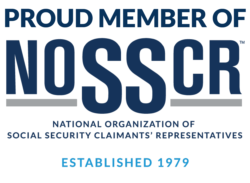Understanding Musculoskeletal and Connective Tissue Disorders
by Eric Slepian
In a recent post, we discussed the fact that musculoskeletal and connective tissue disorders are the most common reasons people collect Social Security Disability benefits, according to recent statistics.
In this post, we will look more closely at what these disorders are and why they can be disabling.
What are musculoskeletal disorders?
As noted by the Social Security Administration (SSA), musculoskeletal disorders include conditions involving the spine, joints, soft tissue or limbs. Generally, they significantly affect a person’s ability to walk, move around or perform fine and gross movements.
In other words, a person with a disabling musculoskeletal disorder may not be able to reach for things, perform personal hygiene tasks or walk without assistance. Many people also suffer from severe, ongoing pain.
Common types of disabling musculoskeletal conditions
Many conditions fall under the umbrella of musculoskeletal conditions. In the context of those that may be eligible for disability benefits, however, the most common include:
- Carpal tunnel syndrome
- Rheumatoid arthritis
- Back pain
- Lumbar spinal stenosis
- Amputation
- Serious bone fractures
- Burns on a person’s head, face or trunk
In some cases, these conditions are not disabling. A person may be able to manage pain effectively, and treatment may help a person recover in a matter of weeks or months.
If a condition is expected to last for at least a year and it prevents a person from performing essential job functions, however, the SSA may consider it a disabling condition. Under these circumstances, a person could collect disability benefits, as long as other eligibility criteria are also met.
Conditions that affect the musculoskeletal system and connective tissue are not uncommon, and many become more common as people get older. However, just because they are widespread does not mean that your case is insignificant or that benefits are a certainty. As such, you should not take chances with an application for Social Security Disability benefits. You can discuss your options and the application process with an experienced attorney.



